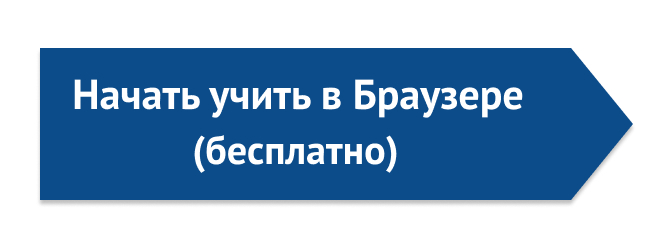

“Человек, который не изучал немецкий язык. Не может иметь ни малейшего представления о том. Какой это сложный язык. […] конечно. Нет другого языка. Который был бы таким небрежным и бессистемным. Таким скользким и неуловимым для понимания ”.
– Марк Твен, “Ужасный немецкий язык”
Если это такой скользкий язык, с какой стати кому-то в здравом уме захочется изучать немецкий?
Почему бы и нет!?
Сегодня мы рассмотрим 10 причин, по которым вам следует изучать немецкий язык.
Содержание
Скачать: Это сообщение в блоге доступно в виде удобного и портативного PDF-файла, который вы можете взять с собой куда угодно.

Нажмите здесь, чтобы получить копию. (Скачать)
1. Немецкий язык легко усваивается
Давайте начнем с развенчания мифа о том, что немецкий язык особенно сложен. Несмотря на все шутки о том, что это невозможный язык, если вы говорите по-английски. Вы на самом деле уже довольно успешны.
Это потому, что немецкий и английский имеют один и тот же германский корень. Следовательно, существует много тысяч слов, которые тесно связаны. Известных как “родственные”. Например, английский chin — это Kinn на немецком языке. Вода становится Вассером, а отец превращается в Фатера. Не так уж и сложно, в конце концов, не так ли?

Кроме того, в отличие от китайского, японского, корейского, русского или арабского, здесь нет нового алфавита для изучения. Нужно добавить всего несколько букв. Если вы уже знаете латинский алфавит (а если нет, я невероятно поражен, что вы до сих пор следили за статьей). То единственными новоприбывшими будут умлауты ä, ö и ü, а также β, которые являются просто причудливыми немецкими буквами s.
И это еще не все. Есть и другие способы быстрого изучения немецкого языка. На самом деле это не та трата времени. Которую многие люди считают. Вам просто нужно научиться учиться с умом. А не усердно.
При наличии правильных ресурсов вы сможете разобраться в сложных частях языка. Например, программа FluentU использует аутентичные немецкие видеоролики с интерактивными субтитрами. Чтобы погрузить вас в язык и культуру по мере изучения. Или вы можете проверить Germanpod101 для получения полезных подкастов, которые эффективны в обучении культуре и языку.
Главное — найти программу (или программы), которые лучше всего подходят для вашего стиля обучения, и вы тоже скоро поймете. Насколько легко может быть изучать немецкий язык.

2. Немецкий — язык изобретателей и новаторов
Говорят, что Германия — страна поэтов и мыслителей — Das Land der Dichter und Denker. Безусловно, нельзя отрицать вторую часть. Большая часть самых впечатляющих достижений в мире была впервые задумана на немецком языке.
Более ста Нобелевских премий получили выдающиеся немцы за достижения в физике, медицине, химии. Литературе и других областях. Это даже не считая призов, присужденных людям из двух других основных немецкоязычных стран, Австрии и Швейцарии. Кроме того, многие получаетели из других стран прошли обучение в немецких университетах.
Итак, если вы хотите добавить Нобелевскую премию к своему резюме, изучение немецкого языка может быть неплохим началом. Возможно, у вас несколько более низкие цели. И вы просто хотите впитать в себя часть этого гения. Читая известные публикации на их родном языке.
3. German is an important language in academia
With that big a number of award-winning scientists from its home country. It might not come as a surprise that German is very important in the academic community. In fact, it ranks second as the most commonly used scientific language.
One of the reasons for this is that the German book market is the third largest in the world. Right after the Chinese and English publishing industries. Since the percentage of these books that are being translated into other languages is fairly limited. Only a knowledge of German will give you access to them.
4. German is the gateway to a world-class higher education
One of the reasons why German has such a high standing in the science community is the fact that Germany’s universities have an excellent international reputation. In the year 2011 ,the country was the fourth most popular destination for students from abroad with more than a quarter million foreigners being enrolled in German schools.
What’s more. The German system for higher education boasts a number of universities with a very low or non-existent tuition fee. No wonder scholars and researchers are flocking there! Learning German to save on student debt sounds like a pretty good return of investment.
5. Germany is an economic powerhouse
German is not only an interesting option for academics. But also those in the business world should consider brushing up on their Deutsch. Germany is the biggest economy within the European Union and the fourth largest worldwide. It is home to numerous international corporations and on the front line of new technologies.
While the schooling system in Germany is set up in a way that every German citizen knows at least some English. Communicating with someone in their native tongue is a sign of good faith that is appreciated everywhere. Knowing the language of your German business partners can greatly improve your chances for effective communication and successful professional relationships.
6. German companies are global market leaders
Speaking of German companies: want to work for a business which is an international market leader in its field? Having German skills on your resume might be able to help you get in the door.
Germany is home to a large number of economic global players. Siemens, Volkswagen. Adidas and Lufthansa are globally recognized brands and corporations. The country also hosts some of the biggest international trade fairs including CeBIT. The world’s largest exhibition for information technology. As well as the IFA trade fair for consumer electronics.
Meanwhile the German capital Berlin is turning into a hub for innovative startups. Some go so far as to dub it “the Silicon Valley of Europe.” As a consequence. Knowing German has the potential to greatly enhance your career opportunities.
7. German is the most widely spoken native language in Europe
English, French and German are the three official working languages of the European Union. In absolute numbers. German is the second most-spoken language on the continent of Europe. However, when it comes to native speakers. German is number one.
For centuries the language served as a lingua franca (a common language which unifies different peoples) in large parts of the European continent. It continues to serve this purpose as an important second language in central and eastern Europe. In the English-speaking world. German is also the third most taught foreign language. In addition to that it comes in at tenth place as one of the major languages of the world. That’s not too shabby for a relatively small country.
It may not have the numbers behind it that Chinese does. But knowing German gives you approximately 100 million additional people to talk to. Not such a small pool after all!
8. German has a big online presence
You don’t even have to meet those 100 million people in the real world. You can do so from the convenience of your own home! German websites make up a huge part of the internet. In fact, in terms of domain endings that are clearly affiliated with a particular country. Germany’s .de is the most popular top-level domain out there. I know, I’m as surprised as you are.
Knowing German gives you access to an additional 15 million websites and that is not even counting the German sites ending in .net, .org and .info. Of course, in terms of absolute numbers .de takes second place to .com which is way ahead of everything else. Second place in the whole worldwide web? Not bad at all, Germany. Not bad at all.
9. Germans are everywhere
Even if you are not planning on going to a German-speaking country or are reluctant to stalk German speakers on the internet. Don’t worry: they will find you. If you have traveled abroad. You have likely witness this phenomenon firsthand. Germany’s citizens are some of the world’s most voracious travelers. With almost six weeks of annual leave and plenty of disposable income, you can run into them allover the globe.
In fact, German people are record holders when it comes to money spent on international travel. For years they invested more in globetrotting than anyone else. It is only lately that they had to cede the pole position to tourists from China. However, that did not keep them from spending an impressive 84 billion dollars on traveling in 2012!
Those of you in the tourist industry can tap into this market with German-speaking guides and staff. If you are just looking to make friends on the road. A little German can make a big difference when you bump into a native German speaker.
10. German culture is part of the world heritage
Though Germans have a reputation for being left-brained. Analytical and in love with logic. The German-speaking world has also produced some of the greatest literary, musical, artistic and philosophical minds in human history. It is the language of the famous written works of Goethe, Kafka. Brecht and Mann. It was the native language of composers Mozart. Bach, Schubert. Beethoven and Wagner. Revolutionary philosophy poured onto the pages in German when pens were first lifted by Kant, Hegel, Nietzsche. And Heidegger.
Learning German gives you the opportunity to appreciate the masterpieces of these artists in their original form. It lets you tap into parts of the world’s cultural heritage in a direct and unfiltered manner. Goethe’s “Faust” alone. Which is written completely in rhyme form. Is well worth the effort. Wouldn’t it be cool to pick up some of your favorite works in German and discover the true meaning of the original text for yourself?
The Case for Learning German
Let’s face it: Out of the available languages in the world. German is not an obvious choice. There has to be a reason why so many people decide to hop on board the German train.
When contemplating learning a new language. You might be asking yourself if the Teutonic tongue is really worth the time and effort. After all, on a global scale German is used by relatively few people.
However, there are good reasons why this language is a good investment. Not just from a linguistic point of view, but also in terms of economic opportunity, networking potential and cultural gain. German is a worthwhile choice.
So whether you are still on the fence about giving the language a try. Or if you are already a student of German and looking for reassurance that you are not wasting your time. I hope this post has shown you why German is well worth learning!
Download: This blog post is available as a convenient and portable PDF that you can take anywhere. Click here to get a copy. (Download)



